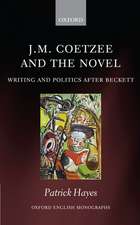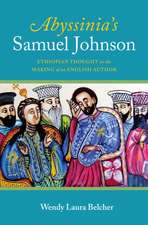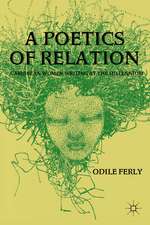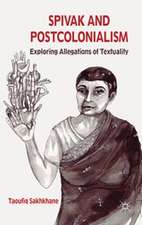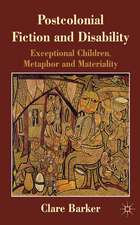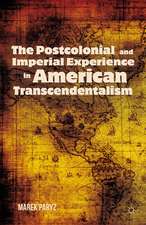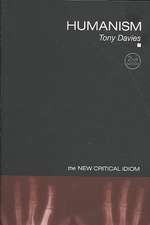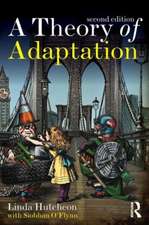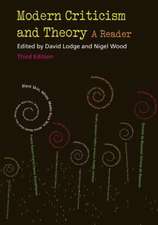Narrating Post/Communism: Colonial Discourse and Europe's Borderline Civilization: BASEES/Routledge Series on Russian and East European Studies
Autor Natasa Kovacevicen Limba Engleză Hardback – 19 mai 2008
| Toate formatele și edițiile | Preț | Express |
|---|---|---|
| Paperback (1) | 484.30 lei 6-8 săpt. | |
| Taylor & Francis – 12 mai 2009 | 484.30 lei 6-8 săpt. | |
| Hardback (1) | 1059.84 lei 6-8 săpt. | |
| Taylor & Francis – 19 mai 2008 | 1059.84 lei 6-8 săpt. |
Din seria BASEES/Routledge Series on Russian and East European Studies
-
 Preț: 228.19 lei
Preț: 228.19 lei -
 Preț: 311.22 lei
Preț: 311.22 lei - 8%
 Preț: 389.15 lei
Preț: 389.15 lei -
 Preț: 737.44 lei
Preț: 737.44 lei -
 Preț: 309.89 lei
Preț: 309.89 lei -
 Preț: 325.30 lei
Preț: 325.30 lei -
 Preț: 297.40 lei
Preț: 297.40 lei -
 Preț: 326.49 lei
Preț: 326.49 lei -
 Preț: 349.10 lei
Preț: 349.10 lei - 9%
 Preț: 1072.83 lei
Preț: 1072.83 lei - 24%
 Preț: 298.10 lei
Preț: 298.10 lei -
 Preț: 398.18 lei
Preț: 398.18 lei - 18%
 Preț: 1271.75 lei
Preț: 1271.75 lei - 18%
 Preț: 1057.05 lei
Preț: 1057.05 lei - 18%
 Preț: 1059.84 lei
Preț: 1059.84 lei - 18%
 Preț: 1062.26 lei
Preț: 1062.26 lei - 18%
 Preț: 1055.51 lei
Preț: 1055.51 lei - 18%
 Preț: 1057.75 lei
Preț: 1057.75 lei - 28%
 Preț: 823.63 lei
Preț: 823.63 lei -
 Preț: 487.75 lei
Preț: 487.75 lei - 18%
 Preț: 1002.36 lei
Preț: 1002.36 lei - 18%
 Preț: 1000.76 lei
Preț: 1000.76 lei - 8%
 Preț: 382.79 lei
Preț: 382.79 lei - 18%
 Preț: 1059.84 lei
Preț: 1059.84 lei - 18%
 Preț: 1059.84 lei
Preț: 1059.84 lei - 18%
 Preț: 1009.21 lei
Preț: 1009.21 lei - 18%
 Preț: 1059.84 lei
Preț: 1059.84 lei - 18%
 Preț: 1167.36 lei
Preț: 1167.36 lei - 18%
 Preț: 1060.87 lei
Preț: 1060.87 lei - 30%
 Preț: 771.71 lei
Preț: 771.71 lei - 18%
 Preț: 1059.84 lei
Preț: 1059.84 lei - 18%
 Preț: 1004.20 lei
Preț: 1004.20 lei - 18%
 Preț: 1053.92 lei
Preț: 1053.92 lei - 25%
 Preț: 515.72 lei
Preț: 515.72 lei - 18%
 Preț: 709.01 lei
Preț: 709.01 lei - 25%
 Preț: 823.08 lei
Preț: 823.08 lei - 18%
 Preț: 1103.19 lei
Preț: 1103.19 lei - 18%
 Preț: 1057.75 lei
Preț: 1057.75 lei - 18%
 Preț: 1065.75 lei
Preț: 1065.75 lei - 18%
 Preț: 1055.51 lei
Preț: 1055.51 lei - 26%
 Preț: 850.73 lei
Preț: 850.73 lei - 28%
 Preț: 825.06 lei
Preț: 825.06 lei - 18%
 Preț: 734.50 lei
Preț: 734.50 lei - 26%
 Preț: 821.94 lei
Preț: 821.94 lei - 18%
 Preț: 1062.98 lei
Preț: 1062.98 lei - 18%
 Preț: 1002.63 lei
Preț: 1002.63 lei
Preț: 1059.84 lei
Preț vechi: 1292.49 lei
-18% Nou
Puncte Express: 1590
Preț estimativ în valută:
202.79€ • 211.75$ • 167.46£
202.79€ • 211.75$ • 167.46£
Carte tipărită la comandă
Livrare economică 15-29 aprilie
Preluare comenzi: 021 569.72.76
Specificații
ISBN-13: 9780415461115
ISBN-10: 0415461111
Pagini: 234
Dimensiuni: 156 x 234 x 14 mm
Greutate: 0.6 kg
Ediția:1
Editura: Taylor & Francis
Colecția Routledge
Seria BASEES/Routledge Series on Russian and East European Studies
Locul publicării:Oxford, United Kingdom
ISBN-10: 0415461111
Pagini: 234
Dimensiuni: 156 x 234 x 14 mm
Greutate: 0.6 kg
Ediția:1
Editura: Taylor & Francis
Colecția Routledge
Seria BASEES/Routledge Series on Russian and East European Studies
Locul publicării:Oxford, United Kingdom
Public țintă
PostgraduateCuprins
1. Introduction 2. ‘Doubly Obscure’ Dissident Narrative: Vladimir Nabokov’s Pale Fire 3. Shifting Topographies of Eastern/Central/Europe in Joseph Brodsky’s and Czeslaw Milosz’s Prose Writing 4. Deviant Stepchild of European History: Communist Eastern Europe in Milan Kundera and Günter Grass 5. Primitive Accumulation and Neanderthal Liberalism: Victor Pelevin, Gary Shteyngart and Criminal Eastern Europe 6. Ethnicizing Guilt: Humanitarian Imperialism and the Case of (for) Yugoslavia 7. Conclusion 8. Bibliography
Notă biografică
Nataša Kovacevic is assistant professor in Global Literature and Postcolonial Theory at Eastern Michigan University. She has published research on linguistic imperialism, Eastern European dissident authors, colonial discourses on the Balkans, and English modernism. Her work engages with transforming postcolonial studies in the postcommunist era.
Descriere
This book examines communist and post-communist literary and visual narratives, including the writings of prominent anti-communist dissidents and exiles such as Vladimir Nabokov, Czeslaw Milosz and Milan Kundera, exploring important themes including how Eastern European regimes and cultures have been portrayed as totalitarian, barbarian and "Orientalist" – in contrast to the civilized "West" – disappointment in the changes brought on by post-communist transition, and nostalgia for communism.



